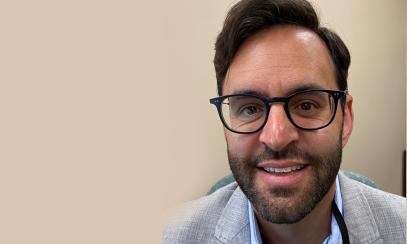The Catholic Church and the Payroll Protection Loan Program
When the COVID-19 crisis abruptly shuttered small businesses across the country, Congress passed the Coronavirus Aid, Relief, and Economic Security (CARES) Act to provide assistance to individuals and businesses who’d experienced a financial impact. Part of the act included a payroll protection program (PPP), designed to help small businesses continue to be able to make payroll. The program, which was managed by the Small Business Administration (SBA), required the money to be used for employee compensation and other restricted uses.
Among the businesses that received aid were a number of non-profit organizations, such as symphony orchestras, museums, universities and churches. The majority of Catholic parishes (approximately 13,000 out of 17,000) applied for the government’s payroll protection program, and nearly 10,000 received funds that enabled them to continue to pay employees when limited funds were coming in through donations.
How has PPP loan money helped Catholic organizations and parishes?
Without the funding from the PPP, lay employees would have been furloughed, resulting in a loss of services to parishes, schools and communities. Some organizations may have had to close.
In the Diocese of Joliet, according to Brian Schroeder, the diocesan chief financial officer, about 100 parishes, schools and organizations received assistance that made it possible for them to mitigate the number of jobs lost during the sharpest rise in unemployment since the Great Depression. The funding helped Catholic organizations in the diocese support employment for an estimated 2,000 lay employees.
“The funds received from the Payroll Protection Program allowed our school principals to retain their teaching staffs and to focus on the educational needs of our Catholic school children as they transitioned to a remote learning environment,” he said. “Pastors were able to focus on safely servicing the spiritual needs of their parishioners and performing outreach ministries, instead of having to worry about how to pay salaries and health insurance for the parish staff.”
A statement from the USCCB
Archbishop Paul S. Coakley of Oklahoma City, chairman of the U.S. Conference of Catholic Bishops’ (USCCB) Committee on Domestic Justice and Human Development, issued the following statement in response to news stories about the Church and the PPP:
“The Catholic Church is the largest non-governmental supplier of social services in the United States. Each year, our parishes, schools and ministries serve millions of people in need, regardless of race, ethnicity or religion. The novel coronavirus only intensified the needs of the people we serve and the demand for our ministries. The loans we applied for enabled our essential ministries to continue to function in a time of national emergency.
“In addition, shutdown orders and economic fallout associated with the virus have affected everyone, including the thousands of Catholic ministries — churches, schools, healthcare and social services — that employ about 1 million people in the United States. These loans have been an essential lifeline to keep hundreds of thousands of employees on payroll, ensure families maintain their health insurance, and enable lay workers to continue serving their brothers and sisters during this crisis.
“The Paycheck Protection Program was designed to protect the jobs of Americans from all walks of life, regardless of whether they work for for-profit or non-profit employers, faith-based or secular.
“Despite all of this, more than 100 Catholic schools have announced that they plan to close, with hundreds more facing an uncertain future. Businesses, hospitals, schools, and churches all across the country are facing many of the exact same problems.
“We will continue advocating for everyone negatively affected by this terrible pandemic, praying for all the sick, for all who have died and are in mourning, and especially the poor and vulnerable at this time of great need.”
Why did Church entities receive government funds?
There have been some comments that the Church should not receive funds from the government, since the Church does not pay taxes. While it is true that churches do not pay property taxes, they do pay the same payroll taxes as any other employer. Church employees are primarily lay people who work for fairly small organizations and who depend on their salaries to provide for themselves and their families. Had they not had the assistance of PPP loan money, many of those people would have been furloughed and become dependent on other government funds, such as unemployment compensation.
According to Joseph Eisenhauer, Ph.D., dean of the College of Business Administration at the University of Detroit Mercy, because the Payroll Protection Program was designed to prevent economic catastrophe, not to promote or endorse any particular organization, religious organizations were eligible to apply for the funding.
“The plan was to help employees remain employed by keeping organizations operable,” Eisenhauer said. “Whether that’s a faith-based or non-faith-based organization, economically it doesn’t matter.”
Isn’t the Church a big, wealthy organization?
People sometimes think the Church is a monolith — something akin to a big corporation with the pope as its CEO. But that is not the reality. Each parish or school functions as an independent unit. Their expenses must be paid out of donations or tuition they collect. Parishes usually pay some kind of diocesan assessment to their dioceses to provide ministries parishes could not do on their own.
By the numbers
On July 6, the Small Business Administration released the data showing which businesses received PPP loans. The SBA set the framework of rules for qualifying for a PPP, but individual lenders made the determinations about who was qualified for a loan.
Here are some of the numbers:
- 86.5% of loans were for less than $150,000
- 4.9 million loans have been made
- $521 billion total loans
- $107,000 is the average size of a PPP loan
- 10,000 approximate number of Catholic parishes that received PPP loans
Top loan recipients:
Restaurants, medical offices and car dealerships
*Disclosure: This report was prepared by FAITH Catholic, which received a PPP Loan through CARES.


